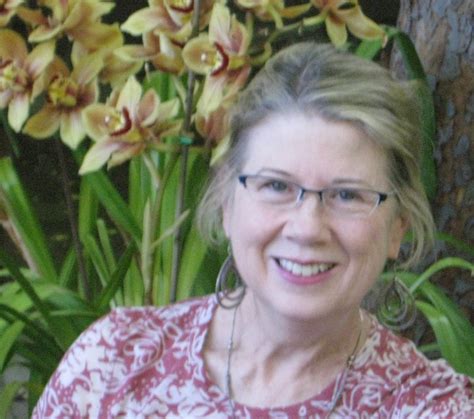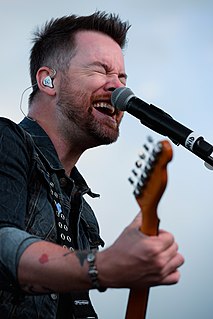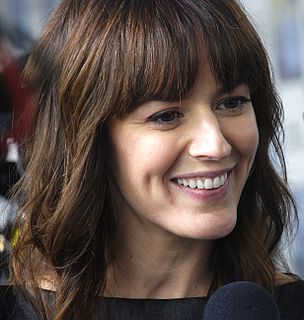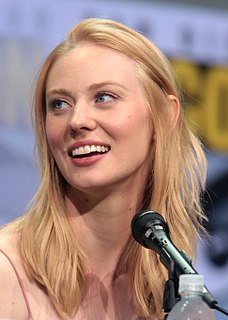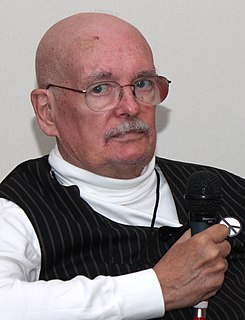A Quote by Nick Cave
I've had to try and find a way over the years of writing narratively that doesn't really require you to sit down and work out what the story's about. You're brought into a sort of sequence of images that have that emotional resonance, but it's kind of irrelevant what the actual story is. It's taken me maybe 13 albums or something to work that out.
Related Quotes
I used to work in TV and quit the job because I couldn't do it any more. I quite like taking my time over a film, five years is how long it takes me to work something out. And when you just do quick turnover, turnaround, I'm literally this is driving me mad, I want to find another living. I'll just have to find a creative way to tell the story.
When I was a kid, I'd go to the African-American section in the bookstore, and I'd try and find African-American people I hadn't read before. So in that sense the category was useful to me. But it's not useful to me as I write. I don't sit down to write an African-American zombie story or an African-American story about elevators. I'm writing a story about elevators which happens to talk about race in different ways. Or I'm writing a zombie novel which doesn't have that much to do with being black in America. That novel is really about survival.
For me, writing music is a way of processing the world. It's not a concrete thing, as in, "This piece is about giraffes." It's much more of an emotional sort of thing. I want people to find something out about themselves through my music, something that was inaccessible before, something that they were suppressing, something that they couldn't really confront.
It's the form it takes when it comes out the other side, of course, that gives a story something unique--its life. The story, in the way it has arrived at what it is on the page, has been something learned, by dint of the story's challenge and the work that rises to meet it--a process as uncharted for the writer as if it had never been attempted before.
I always believe that every song tells a story, so the last thing I want to do is edit out like the meat of the story. I would pick songs based off a), whether I felt like I could do anything with them, and b) whether I felt like I could keep the story intact. And then you sit in with one of the piano players and one of the vocal coaches and kind of work out your arrangements that way.
As an actor, you never really set out to be a stand-out character. You just want to do justice to the story and enjoy playing it, and find all the different nooks and crannies of who someone is. For each part that you get, they're all special and you just try to give everything you can to each one. I don't know whether they're going to be stand out in that way or not factors into my work. They all stand out for me.
Writing about real stuff that really concerned me brought out my craft. If you're writing a story about, 'Is Lois Lane gonna figure out that Superman is Clark Kent?' - it's really hard to get involved in that on anything other than a craft level. And I'm not gonna put down craftsmanship; it is a noble enough thing to have made a table that you can pound on and it doesn't fall down. But occasionally, we might have an assignment that engages some other parts of ourselves, and those tend to be the good stories.






